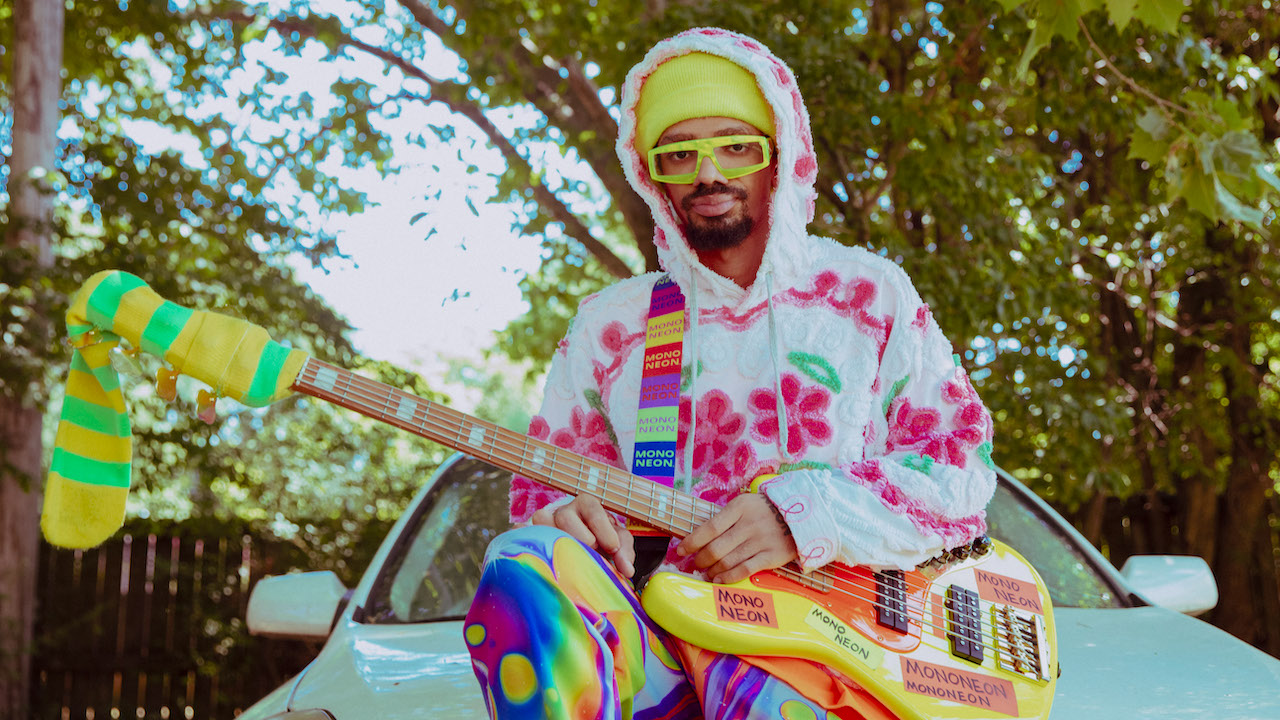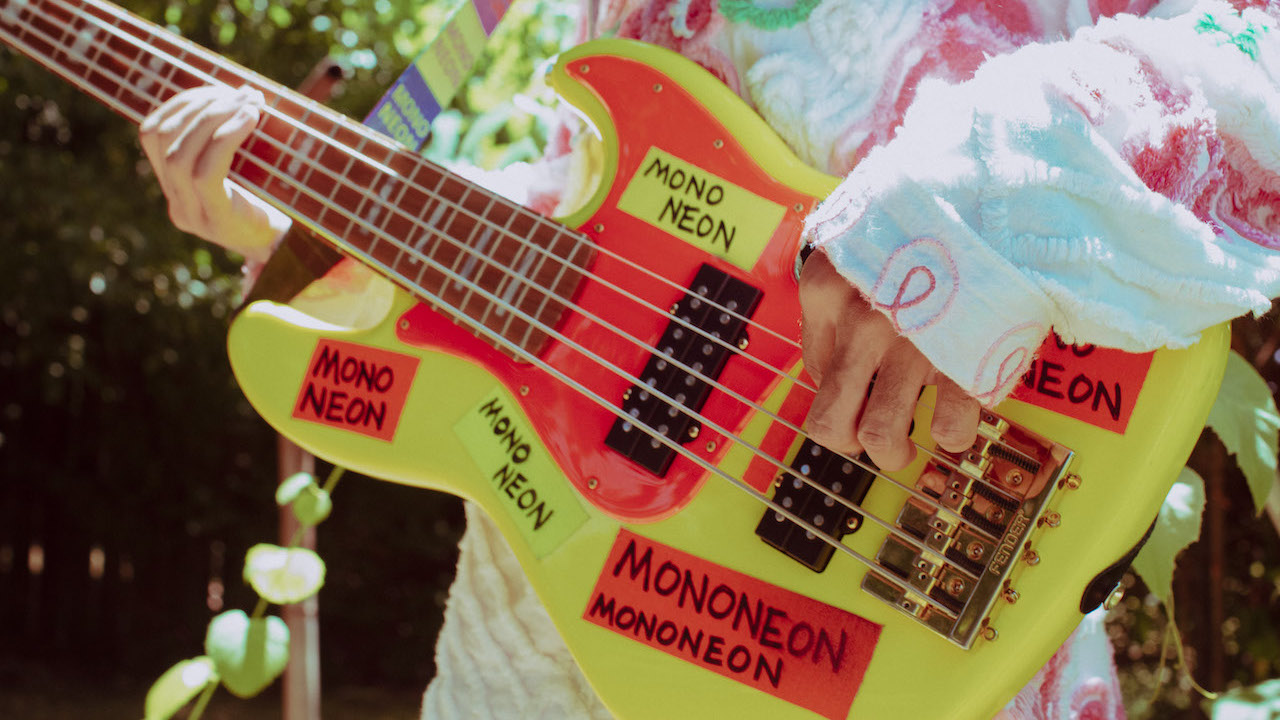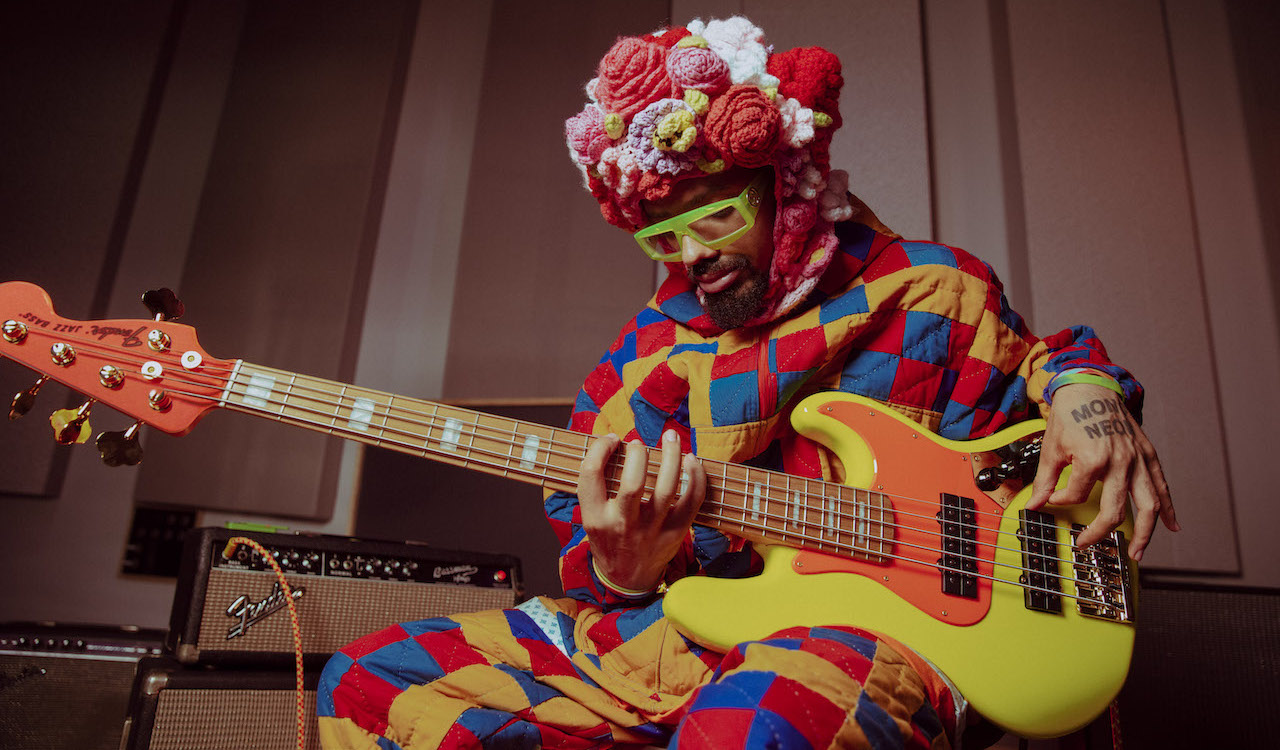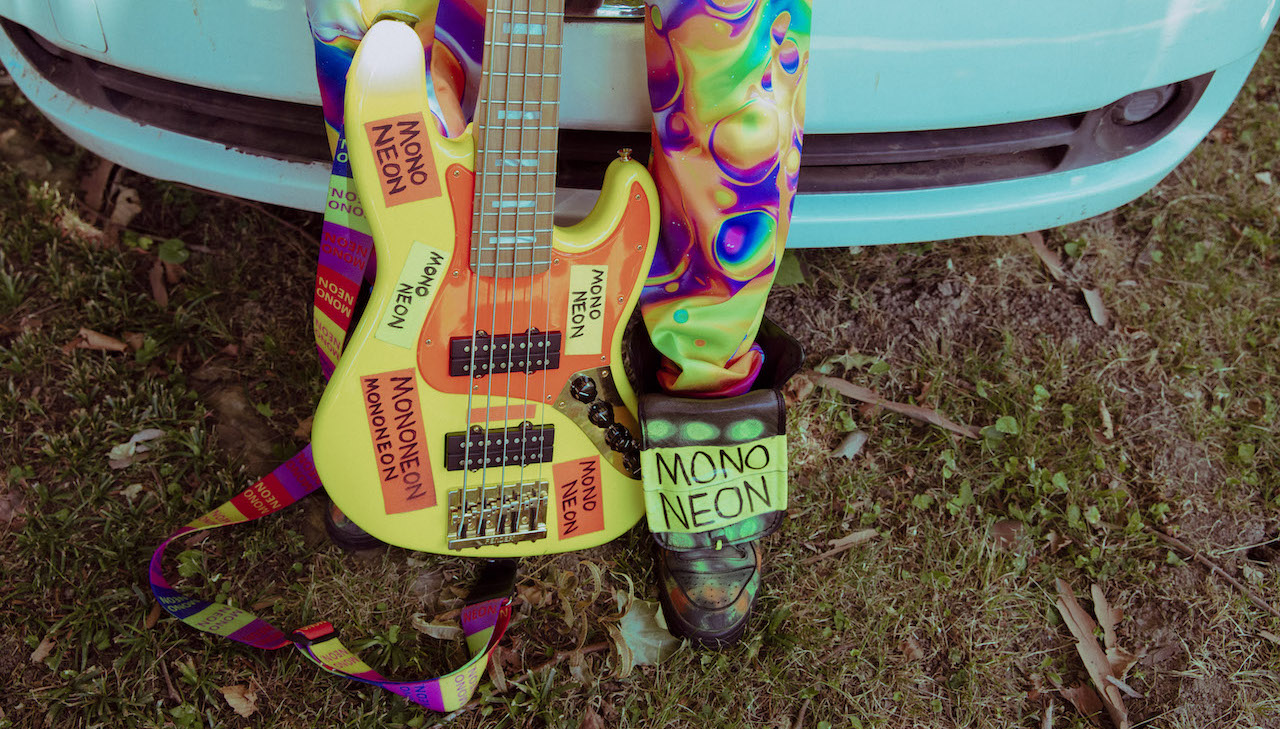MonoNeon: “I’m still not over Prince’s death – I was still getting to know him”
We talk to MonoNeon, touted by Flea as the ‘greatest f**king electric bass player’, about his funk roots, playing with Prince and his new Fender 5-string Jazz Bass

All the latest guitar news, interviews, lessons, reviews, deals and more, direct to your inbox!
You are now subscribed
Your newsletter sign-up was successful
Dywane Thomas Jr, aka MonoNeon, gets his stage name for a reason, as you can see from the photos. Influenced equally by blues, classic soul and art movements such as Dadaism, he’s a solo and session artist best known for being the last bassist to work with Prince before the Minneapolis legend’s premature death in 2016.
Check out Mono’s playing: he plays a right-handed bass guitar left-handed, leading to an unusual but extremely funky slap technique, and he was recently recognised for his skills with a signature Fender Bass Jazz V. The natural successor to the funk greats of a former generation, he’s an individual that stands out from the rest of us in every way.

Talk to us about your signature Fender, MonoNeon.
"Fender contacted me and asked, ‘Would you like to have a signature bass with us?’ I told them what I wanted. The first thing I told them was the colors – I wanted it to be high visibility. Yellow and orange are my favourite neon colours, and I wanted a roasted maple neck, humbuckers and an 18 volt battery, so it’s pretty loud."
Are you right- or left-handed?
"I’m actually right-handed, but I play left-handed for some reason. I take a right-handed bass and flip it over. I’ve been playing that way since I was four years old when my dad gave me a guitar. I just flipped it over, I don’t know why. It just felt comfortable that way. From there, I just practiced every day to the radio. I was born to just do it, I guess."
What got you started on bass?
"Seeing my father [Bar-Kays bassist Dywane Thomas] play when I was a young kid. He wasn’t around very much because he was touring, but I was around him enough to want to play bass like him. But I guess the music was always in me, because my grandfather Charles Thomas was a jazz pianist and played with Ron Carter. I was always around music: my grandma used to sing in church and my mom used to play Toni Braxton and Whitney Houston all the time in our car."
Who were the bass players you admired?
"Of course, my dad and James Alexander from the Bar-Kays. Then when I got a little bit older, I started listening to Victor Wooten and Stanley Clarke. Anthony Jackson is my number one favorite: he’s still the only bass player that I really listen to, because I really don’t listen to bass players as much as I used to. I listen to Anthony all the time."
How long did it take before you were competent as a bass player?
All the latest guitar news, interviews, lessons, reviews, deals and more, direct to your inbox!
"I still don’t feel like I’m competent enough, but I guess when I started playing in church in my early teens, that’s when I started to really hone in on my skills, especially playing within a band, because I learned a lot from the gospel organ players and piano players – how to give directions, especially."
Is that a pressured environment?
In a way, but it’s also a great environment, especially if you’re around some of the best musicians that play this stuff. It can be pressured if you’re not on top of your shit. You’re not gonna get it overnight, but it just makes you want to be good at what you’re doing.
Have you ever studied music theory?
"I went to Berklee for two years, but I didn’t really go to class so I really didn’t learn all the bookish scholarly stuff. Of course, I was around musicians that were better than me and really shaped who I am. I hung around a lot with David Fiuczynski, the guitar player, learning about microtonal music and visual arts. That really opened my mind up to a lot of stuff."
Would you recommend a formal education to bassists?
"Of course, if that’s something you feel like you need. There’s nothing wrong with it. I’m glad I went to Berklee because I met so many great musicians there, but there’s something about formal education and being in class and learning stuff that I really can’t do. I’ve always been that way. I used to sit in my elementary school class and daydream."

What was it like to play with Prince?
"It was such a casual, cool experience, being around him. I thought it was gonna be a situation where I would have to change up something about myself, but he he literally allowed me to be who I was. He really embraced the whole MonoNeon thing and allowed me to do what I wanted to do while I was with him. He just let me play what I wanted to play."
He never directed your playing?
"I remember one time he told me, ‘Play a little bit less here’. I probably overplayed a little, especially when I was learning a song. But honestly, he would let me do what I wanted the rest of the time. I knew what he wanted, especially in the studio, so he would just let me figure shit out."
How do you look back on your time with him?
"That whole experience was just so surreal, because when he passed away, I was just there with him: we just started recording together. Honestly, I’m still not over it, because I was just getting to know him and be around him. But it was a great experience – really great – and it got me into songwriting, from being around him."

The MonoNeon Jazz Bass V is available now for $1,549. For more information, head over to Fender.com or visit mononeon.com
Joel McIver was the Editor of Bass Player magazine from 2018 to 2022, having spent six years before that editing Bass Guitar magazine. A journalist with 25 years' experience in the music field, he's also the author of 35 books, a couple of bestsellers among them. He regularly appears on podcasts, radio and TV.

